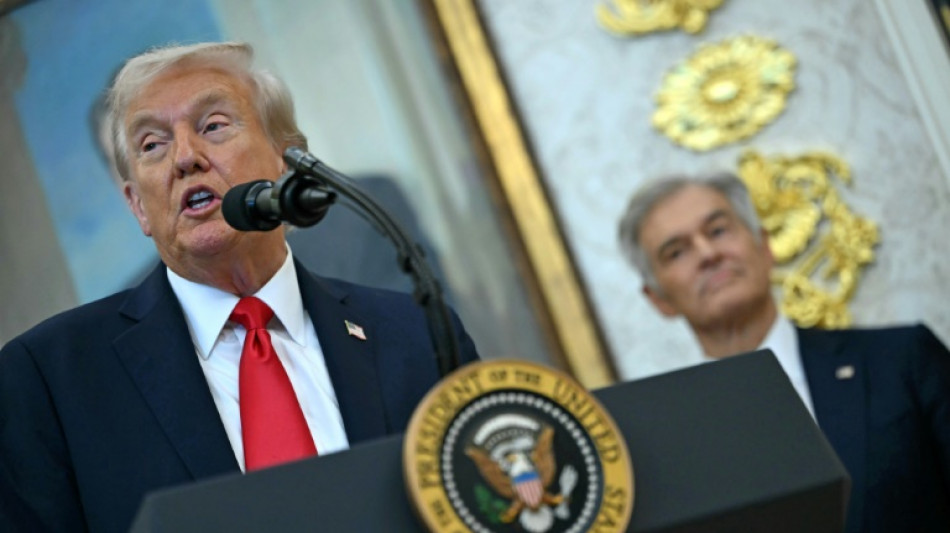

Trump announces plan aimed at improving IVF accessibility
Donald Trump on Thursday announced a plan aimed at making in vitro fertilization more affordable, an initial step in a long-touted campaign promise.
Earlier this year Trump dubbed himself the "fertilization president" and has vowed to address IVF accessibility, an effort that has sowed division within his base between pro-natalist members and conservative Christians.
Substantive coverage of fertility-related procedures and medications in the United States remains rare and highly variable depending on specific patients, providers, employers and state rules.
It was unclear what concrete changes the initiative could lead to. But Trump said in Oval Office remarks that "prices are going way down. Way, way down."
Trump said the White House is proposing a so-called employer benefit option they say would encourage employers to offer workers coverage for IVF through a supplemental plan.
That would be similar to how dental and vision care are frequently managed in the United States -- carved out of the core medical insurance and covered as a standalone type of care.
"I'm asking all employers to make these new fertility benefit options available to their employees immediately," Trump said.
Senior administration officials told journalists there was no discussion of creating subsidies that would incentivize employers to provide IVF benefits, nor was it mandating they do so.
A typical round of IVF treatment -- patients must frequently endure multiple rounds to achieve a viable pregnancy -- can cost tens of thousands of dollars. Necessary prescription drug costs alone can set back hopeful parents by the thousands.
The Trump administration's announcement included a proposal to make some of those drugs available for patients to purchase directly from manufacturers at discounted rates, via the president's new website TrumpRx, starting in early 2026.
Trump's IVF efforts have emerged as a dividing line among competing groups within his own base.
Many Christian conservatives voice staunch opposition to IVF, primarily because it can involve discarding human embryos.
Trump side-stepped the issue when queried about it Thursday.
"I think this is very pro-life," he said. "You can't get more pro-life than this."
About a quarter of US employers with 200 workers or more currently offer health plans that include at least some IVF coverage, according to the KFF health policy research organization.
Some states require private insurers to include services in their plans. And some states require Medicaid, the government program for low-income individuals, to include some benefits related to fertility.
TJ Farnsworth -- the head of Inception Fertility, a providers alliance -- welcomed the White House efforts, but said it is on employers to consider what they offer.
"I just think it's really important that people realize that this is an amazing start to the conversation, but it's not likely to have an immediate impact to patients," Farnsworth told AFP.
W.Srinivasan--MT




